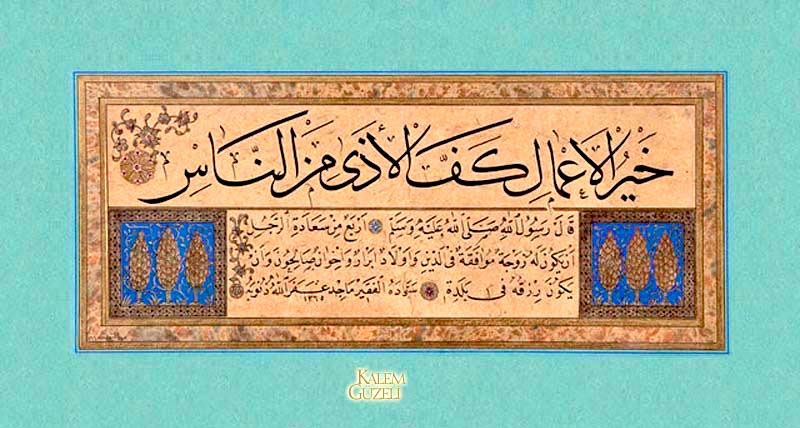﷽
#Tasawwuf is an integral part of how we find meaning in our lives. We can behold Allāh, thereby fostering gnosis, or internalize it as being attached to the ego. The latter often leads to anxiety, depression, self-rejection, various forms of addiction, and even suicide…
#Tasawwuf is an integral part of how we find meaning in our lives. We can behold Allāh, thereby fostering gnosis, or internalize it as being attached to the ego. The latter often leads to anxiety, depression, self-rejection, various forms of addiction, and even suicide…
What is so critical to understand is that the process of finding meaning and healing is a *devotional*, not a cognitive, nor academic one. This sets tasawwuf distinctly apart from any psychological method, be it ‘Islamic’ or otherwise.
This doesn’t mean there’s no place for psychology, it just means that it doesn’t take the place of tasawwuf. Tasawwuf draws upon God for strength. Psychology draws upon the mind (ego). Tasawwuf targets root ailments of the heart. Psychology provides techniques for symptomic care.
Psychological care is administered by a practitioner of that field. Tasawwuf is administered by a sūfi master.
Put simply, even if you have need for a psychologist (which is entirely fine), you still have (greater) need for tasawwuf.
Put simply, even if you have need for a psychologist (which is entirely fine), you still have (greater) need for tasawwuf.
A sūfī guide is a master of the inward and outward *sacred disciplines*. A psychologist is a master of _an_ inward *secular science*. It would be foolish to attempt to take spiritual mentorship from them regardless of how ‘Islamic’ it is. The two are fundamentally different.
As for books & articles, the only thing they can do is facilitate taking of the ‘prescription’. Ironic how none would ever say that psychological treatment can be taken from an article, yet there are ‘spiritual’ articles abound that entirely circumvent the *system* of tasawwuf.
Tasawwuf is about adherence to the shari’a, point blank. It’s about placing God on His Thrown _in your life_. This comes in stages and dawns upon one internally but is entirely precluded without the proper *spiritual first principles*.
الرحمن على العرش استوى
الرحمن على العرش استوى
Those principles used to be second nature in understanding the Religion, yet now are consider a cryptic code distant from reality. One of the simplest aspects of #metafiqh is to set those spiritual first principles straight, because there can be no building without usūl…
In fact, if we reflect deeply, we may realize that the mental health crisis in our Community is because we’ve abandoned these spiritual first principles and so, instead of treading through this life as strong believers, parents, spouses, and scholars, we’re not making headway…
The sūfis have an exaggerated saying that is so relevant here.
لا ينفع عمل مع كبر ولا بطالة مع تواضع
meaning, no deed benefits along with arrogance and no inactivity harms along with humility.
Humility to the Islāmic tradition is a force in itself. It should be the drive.
لا ينفع عمل مع كبر ولا بطالة مع تواضع
meaning, no deed benefits along with arrogance and no inactivity harms along with humility.
Humility to the Islāmic tradition is a force in itself. It should be the drive.
In preparation for the descent of the ‘Ramadān Quran’ upon us, in tongue through the ta’awwudh, and in heart through goodwill toward all believers, let us also prepare our minds through humility.
The Quran is a cure because it mentors us through the Divine Knowledge of ar-Rahmān about His creatures. If we had this knowledge about ourselves already, we wouldn’t need the Qur’ān in the first place…
We can’t get to Allah except *through Him*. This is another way of stating the primary axiom of #metafiqh. Divine knowledge is above human knowledge. A simple, obvious principle that is so often breached. Ramadan is a fast from the ego, allowing the heart to re-emerges strong…
The revelation came to Rasūlullāh ﷺ when he was deeply reflecting on the earthly harms of his time. The light in his blessed heart was then reflected by the celestial realm through the descent of the Qur’ān, the teaching of ar-Rahmān.
My friends, if we’re seeking cure, finding love & mercy eclipsed by hatred & oppression, perhaps we aught to start by having rahma on yourselves. Fast from the ego. Be humble to your Loving Lord. The ego plays a game where it’s always the winner and you’re always the loser…
In conclusion, in comment on this post which I really had no idea was so…’different’…I forgot to say that I named my first born cub Abdur-Rahman. Pray for him and all my sweet children, please.
اللهم صلّ وسلّم وبارك على سيدنا محمد وآله
اللهم صلّ وسلّم وبارك على سيدنا محمد وآله
https://twitter.com/imanmbadawi/status/1502103426947325958
• • •
Missing some Tweet in this thread? You can try to
force a refresh
















